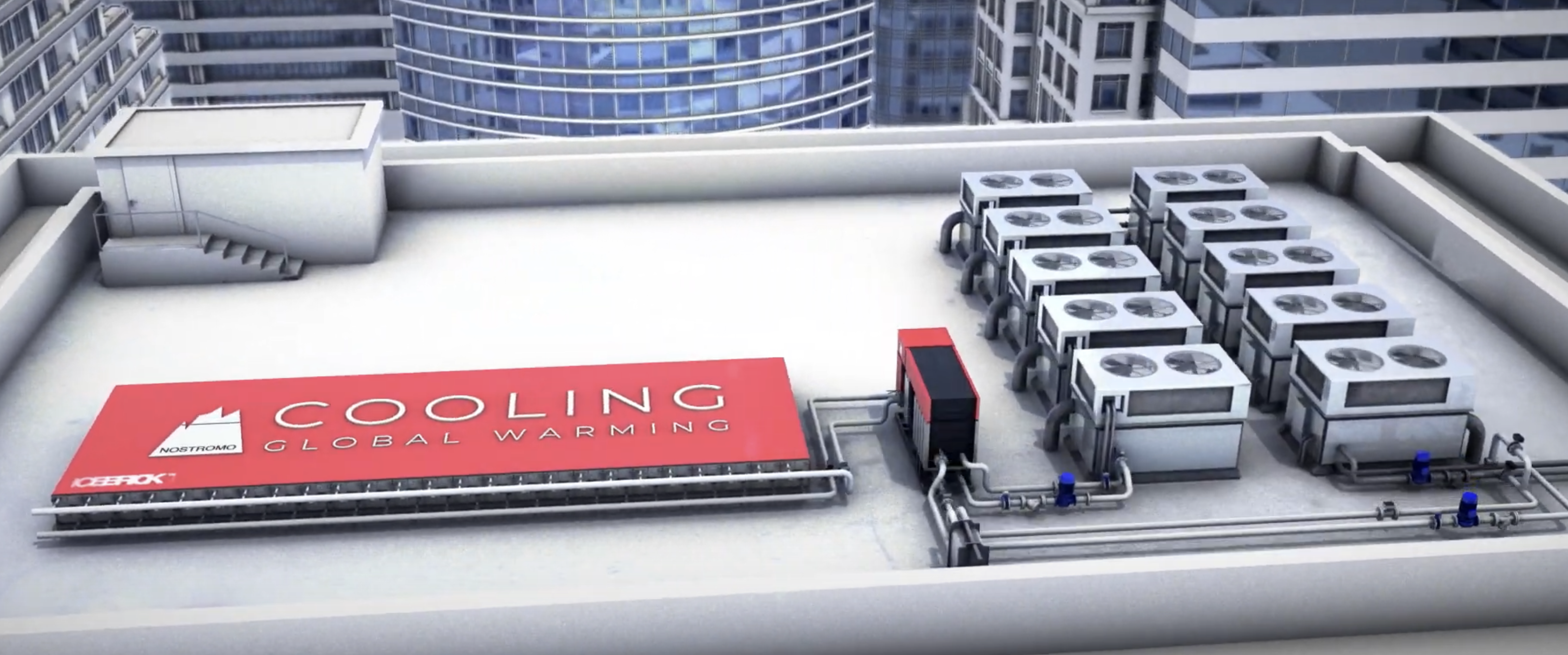The General Services Administration and the U.S. Department of Energy have selected 17 innovative building technologies to evaluate in real-world settings throughout GSA’s real estate portfolio.
This year, field validation will be conducted on five of these technologies that will support commercial buildings decarbonization and the implementation of DOE’s recently released Decarbonizing the U.S. Economy by 2050: A National Blueprint for the Buildings Sector. The technologies include modular ice-based energy storage from Nostromo Energy, a modular cold-climate air-source heat pump from Trane Technologies, an air conditioning system incorporating a liquid desiccant and evaporative cooling from Blue Frontier, a refrigerant life cycle management strategy from êffecterra, and an internet-of-things based building management system from 75F.
The evaluation will consider how well products reduce energy use and greenhouse gas emissions. HVAC in commercial buildings consumes up to 44% of on-site energy, according to a DOE news release.
GSA anticipates that the results of this year’s evaluations will be available in 2026. DOE and GSA have partnered through the same program since 2015. Since 2011, the program has evaluated 107 technologies, 23 of which have been deployed across more than a third of GSA’s federally owned portfolio.
Related Stories
Codes and Standards | Jul 22, 2022
Hurricane-resistant construction may be greatly undervalued
New research led by an MIT graduate student at the school’s Concrete Sustainability Hub suggests that the value of buildings constructed to resist wind damage in hurricanes may be significantly underestimated.
Building Team | Jul 20, 2022
San Francisco overtakes Tokyo as the world’s most expensive city for construction
San Francisco has overtaken Tokyo as the world’s most expensive city for construction, according to a new report from Turner & Townsend.
Airports | Jul 18, 2022
FAA will award nearly $1 billion for airport projects
The Federal Aviation Administration (FAA) will award nearly $1 billion to 85 airports of all sizes across the country to improve terminals.
Building Team | Jul 13, 2022
The YIMBY movement emerges as valuable advocate for affordable housing
Over the past few decades, developers grew accustomed to nothing but staunch opposition to dense affordable housing project proposals.
Codes and Standards | Jul 12, 2022
USGBC sets out principles for LEED’s future
The U.S. Green Building Council recently published a report containing principles outlining how LEED will evolve.
Codes and Standards | Jul 8, 2022
Inefficient supply chains, outdated project delivery systems hamper construction investment
Constructing and justifying the cost of physical assets such as a manufacturing plant is much more difficult than it was decades ago, according to a report by Steffen Fuchs, senior partner with McKinsey & Company.
Building Team | Jul 7, 2022
Report explores improving architect/contractor relationship
A new study by the American Institute of Architects and the Associated General Contractors of America focuses on improving the relationship between architects and contractors.
Codes and Standards | Jun 15, 2022
Waived tariffs on solar panels expected to boost solar power
The Biden Administration recently waived tariffs on solar panels from four countries in a move advocates say will accelerate the clean energy transition and benefit national security.
Codes and Standards | Jun 14, 2022
Hospitals’ fossil fuel use trending downward, but electricity use isn’t declining as much
The 2021 Hospital Energy and Water Benchmarking Survey by Grumman|Butkus Associates found that U.S. hospitals’ use of fossil fuels is declining since the inception of the annual survey 25 years ago, but electricity use is dipping more slowly.
Codes and Standards | Jun 8, 2022
Florida Legislature passes bill requiring stricter condominium inspection
The Florida Legislature recently passed a bill to beef up building inspection requirements for many of the state’s condominiums.

















